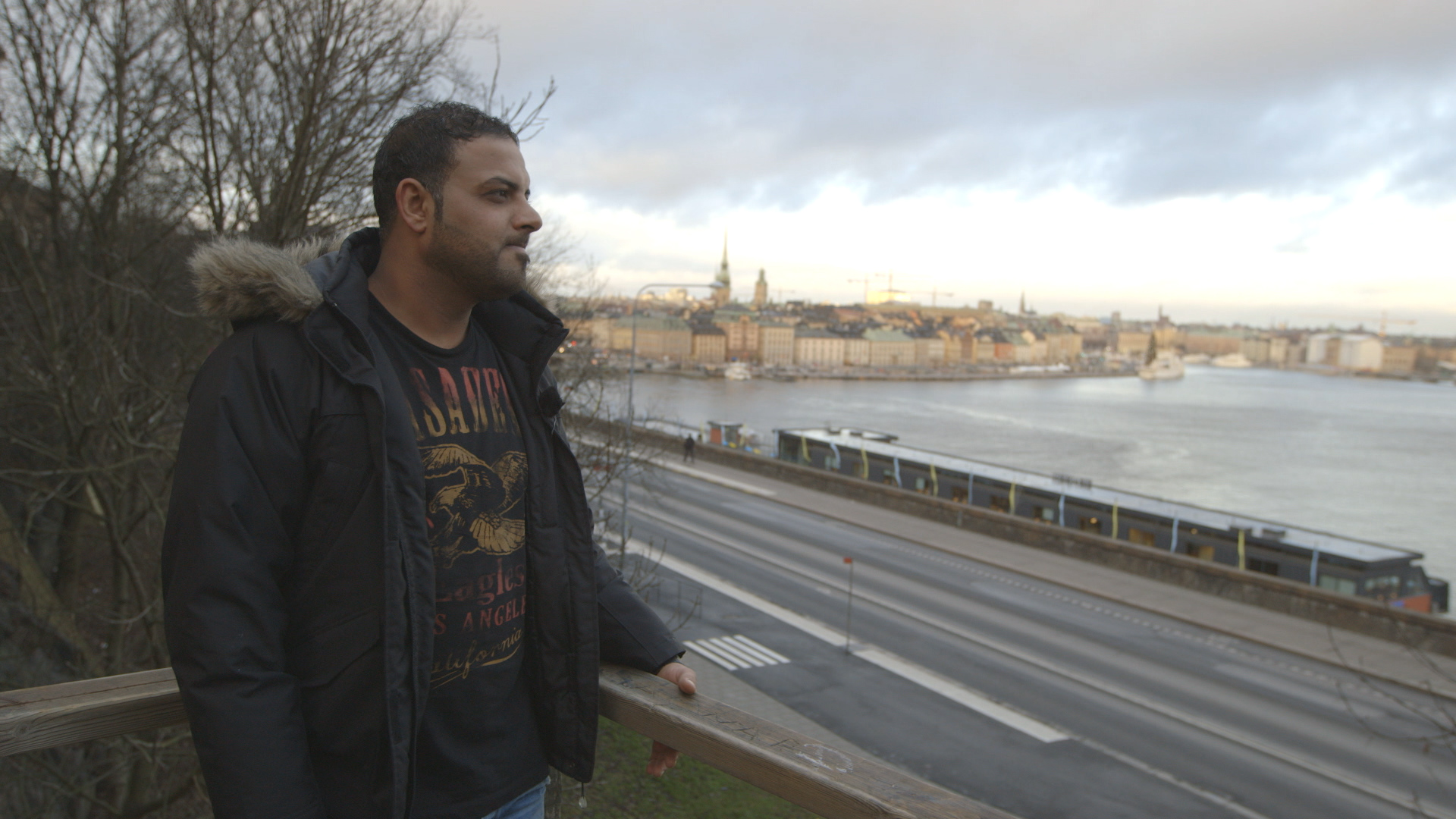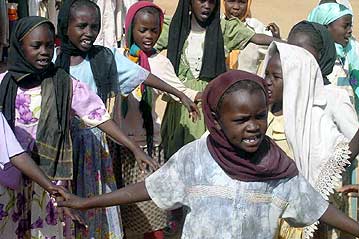Community centres: Regulating life in eastern Chad's refugee camp
Community centres: Regulating life in eastern Chad's refugee camp

IRIDIMI CAMP, Chad, May 6 (UNHCR) - "It was the day of the market, soldiers were riding horses. Some of our children were killed by bombs dropped by planes on our village," recalls Dahab. The horror scenes are still vivid in everyone's minds, but they feel a sense of relief by talking to each other about it.
"I have seen a woman before my eyes, her eight-month-old baby was killed in her arms by a bomb. The mother survived, but the baby died instantly," says Aziza.
Most of the women - refugees from western Sudan's Darfur region - did not have time to grab anything from home. "We had gone to the well when the attack began. We just had time to get on our donkeys with the children and cross the border. When we last saw our village, it was on fire. The Janjaweed and soldiers pillaged and raped in the middle of an indescribable din," recalls Ampal, struggling to catch her breath from crying.
Today, the women are sharing their experiences in a community centre in Iridimi camp, eastern Chad. "There are 11 community centres in Iridimi camp, which aim to be a meeting point for the residents of each zone, somehow regulating the refugees' lives," explains Christine Lamarque, who is in charge of community services in UNHCR's office in Iriba.
The centres offer a space where refugees, regardless of age and gender, can talk about common problems and participate in group activities. They also provide a form of therapy particularly for the women, who meet and discuss living conditions in the camp and the circumstances of their flight from Darfur.
"Women and girls were raped, old ones and younger ones. We do not like talking about it because they are shameful acts. But we talk to each other about it in the centres, it makes us feel better and comforted," says Aziza.
Each community centre has a radio set, allowing the refugees to follow news or other programmes. Sitting on a mat in the community centre, Dahal, Ampal, Nabila and Aziza are knitting - one of several income-generating activities offered at the centre - while concentrating on the radio news in Arabic.
"The situation is quite tense between Sudan and Chad," notes one of them, breaking the silence following the mid-day news. The others nod in approval.
Besides providing information and moral support for the refugees, the community centres also serve their more basic needs. "This is where vulnerable people are identified and the needs of refugees in this zone are conveyed to the camp administrators," says Zubida Saleh, a community services assistant for CARE International, UNHCR's partner responsible for the daily running of the camp.
Births, deaths and weddings are also registered at the centres. "We do what we can to allow refugees to respect their customs," says Valérie Laforge, who is in charge of community services for CARE International.
In difficult conditions and with limited means, the community centres at Iridimi camp are one of the few ways for UNHCR and its partners to offer, as much as possible, a normal life to the refugees outside their home.
By Bernard Ntwari in Iridimi camp, Chad








